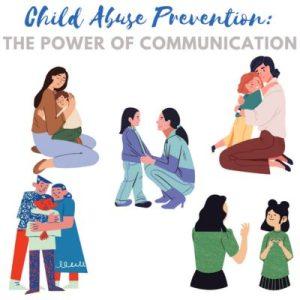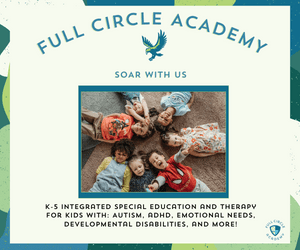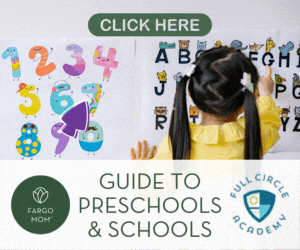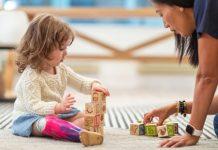April is National Child Abuse Prevention Month. The Red River Children’s Advocacy Center (RRCAC) in Fargo is presenting this article as part of a 4-part series to help educate on child abuse prevention.
RRCAC’s mission is to facilitate healing and justice for victims of sexual and physical abuse, neglect and exploitation, and to engage the community to protect and support children.
The Power of Communication
Healthy and open communication between a child and their caregiver is important for child abuse prevention. There will always be situations where your child will be out of sight, being able to talk to them and explore their experiences is key to building strong, safe bonds with your child.
This means not only asking questions, but also reacting to what they share in a caring, non-scary way.
3 Ways to Communicate Effectively to Prevent Child Abuse
1. Use open-ended questions to open up a conversation.
Some helpful open-ended questions include, “Tell me more about…” or, “Can you help me understand…” For instance, after your child visits a friend’s house, simply asking, “Tell me more about your time at Sarah’s house,” invites your child to talk freely. And this allows for clarifying questions to gather more information.
2. Talk to your child early and often about boundaries, safe/unsafe touches, and that it’s ok to tell a safe adult.
Research shows that teaching young children correct names for their genitalia, where they shouldn’t be touched, and identifying that they shouldn’t be keeping secrets from adults promotes healthy body development. Also, it helps the child feel more comfortable to disclose abuse if it occurs.
3. If your child states something that is concerning, stay calm, caring, and supportive.
Children watch their parents for their reactions and that can affect what they tell you in the future. Adults know that what their child may be disclosing is scary and wrong — but your kiddo is probably feeling ashamed, confused, and scared. A negative reaction may reinforce the assumption that they will get in trouble for telling you.
Overall, having difficult conversations with your child will take practice and patience, but being a safe person for your child to talk to is one of the most important ways you can protect your child from child abuse.

More Resources on Child Abuse Prevention
And for more information on open communication with your child and child abuse prevention, you can visit these websites:
















